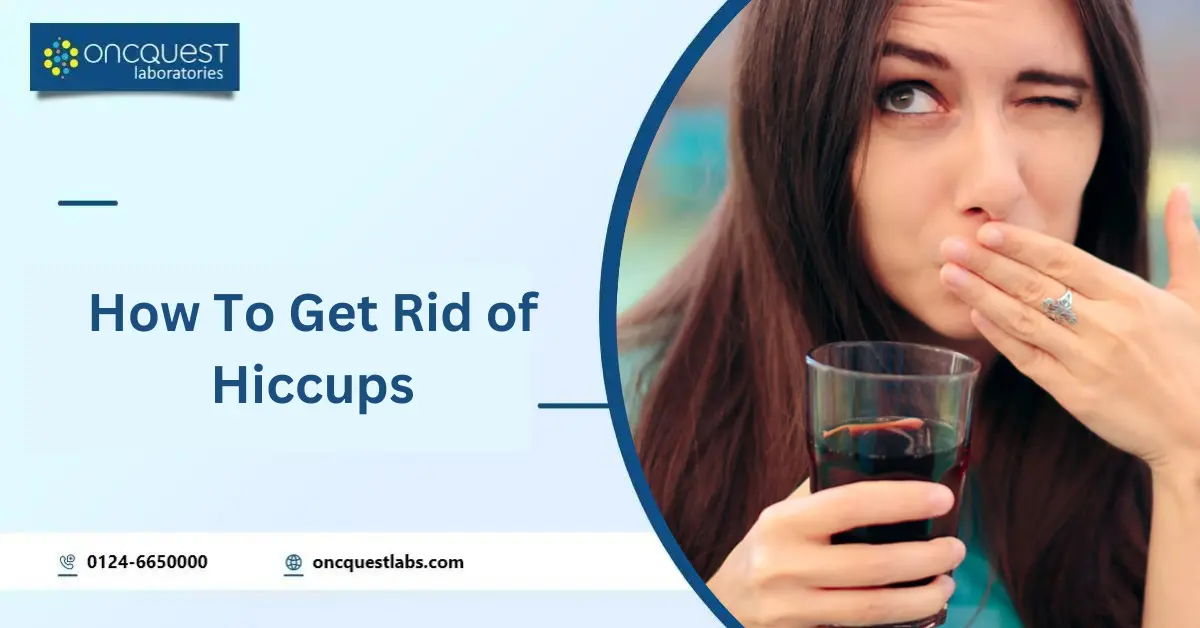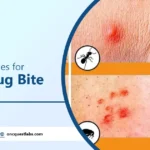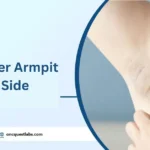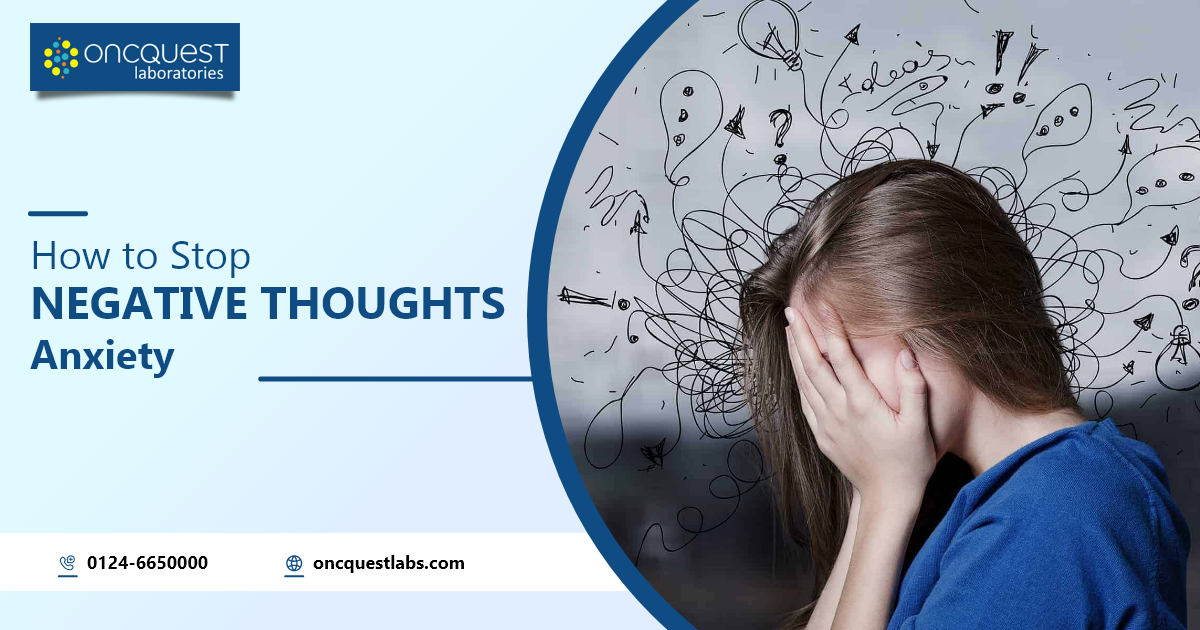Hiccups are usually just a bothersome thing. Sometimes, you might hiccup because you ate too quickly or had some fizzy soda. But there are times when hiccups stick around for a long time, like days, weeks, or even longer. This can happen because of certain health problems, medicines you take, or surgeries you’ve had. If your hiccups won’t go away, you might need treatment to stop them and deal with what’s causing them in the first place.
Contents
What are hiccups?
Hiccups are when your belly muscle (diaphragm) suddenly moves and makes a “hic” sound because your throat closes quickly. Your diaphragm helps you breathe, going down when you breathe in and up when you breathe out. During a hiccup, two things happen: your diaphragm jerks down, causing you to gulp air, and your throat quickly shuts to stop more air. This makes the hiccup sound.
Usually, hiccups stop on their own without needing help. But if they last longer than two days, it’s a good idea to talk to a doctor. They might signal a bigger problem. Hiccups are also called hiccough or singultus.
Types of hiccups
Doctors categorize hiccups based on how long they stick around:
1. Transient hiccups: These are short-lived, lasting only a few seconds or minutes.
2. Persistent hiccups: These last longer, from 48 hours to about a month.
3. Intractable hiccups: These are the ones that go on for more than a month.
4. Recurrent hiccups: These keep happening over and over again, with each episode lasting longer than just a few minutes.
Transient hiccups are like quick visitors, while persistent ones stick around a bit longer. Intractable hiccups are the ones that overstay their welcome for more than a month. Recurrent hiccups are like frequent guests who keep returning, each time staying a little longer than before.
What are the symptoms?
Hiccups usually show up as sudden twitches in your diaphragm muscle, paired with the distinct “hic” noise. However, for those dealing with persistent hiccups, the diaphragm may spasm without producing the familiar “hic” sound. This means they might feel the hiccups inside but not hear them coming out.
What causes hiccups?
Hiccups happen when certain nerves in your body get irritated, causing your diaphragm muscle to suddenly squeeze. These nerves are part of a pathway called a reflex arc, which controls your body’s automatic functions like breathing and digestion.
Short hiccups, lasting a few seconds to minutes, can happen without a clear reason, but some triggers might include eating too quickly, spicy foods, fizzy drinks, swallowing air, smoking, or drinking alcohol.
Long-lasting hiccups can be due to various health issues like stomach problems, nerve disorders, lung conditions, tumors, metabolic issues, or infections. Certain medications and surgeries can also trigger persistent hiccups.
What are the complications of hiccups?
Short hiccups typically don’t cause any serious issues. However, hiccups that last a long time can result in several complications:
1. Trouble with Basic Functions: Persistent hiccups can make it hard to breathe normally, swallow food and drinks comfortably, or speak without interruptions.
2. Sleep Problems: Continuous hiccups can disrupt sleep patterns, leading to difficulty falling asleep or staying asleep. This can cause exhaustion and daytime fatigue.
3. Weight Loss: Prolonged hiccups may affect your ability to eat and drink properly, potentially resulting in weight loss over time.
What causes newborn hiccups?
Hiccups are a normal occurrence in babies and are generally harmless. Healthcare experts believe that baby hiccups happen due to increased gas in the stomach, often caused by overeating or swallowing air while feeding. This gas can stretch the tummy and irritate the diaphragm, leading to hiccups.
However, in some cases, hiccups in babies could be a sign of gastroesophageal reflux disease (GERD). If your baby experiences other symptoms like coughing and spitting up along with hiccups, it’s essential to consult your pediatrician for proper evaluation and guidance.
How are hiccups diagnosed?
If your hiccups last only a few minutes, you probably won’t think it’s necessary to contact a healthcare professional. However, if your hiccups persist for more than two days, it’s important to reach out. Your healthcare provider will likely ask you to come in for an appointment, during which they will:
– Ask about your medical history, including any recent surgeries.
– Inquire about the medications you are currently taking.
– Ask about any other symptoms you may be experiencing.
– Conduct a physical examination.
This information will help your provider determine the cause of your persistent hiccups. Persistent hiccups that don’t go away can sometimes indicate a more serious underlying condition that requires diagnosis and treatment.
Your provider may also recommend some tests to pinpoint the cause of your persistent hiccups. These tests may include:
– Blood tests.
– Chest X-ray.
– Electrocardiogram (EKG).
– Upper endoscopy.
– Abdominal CT scan.
– Brain MRI.
How can I get rid of hiccups?
There’s no definite cure for random hiccups yet as experts are still researching. However, transient hiccups typically vanish on their own without any intervention.
Nevertheless, if you’re bothered by them, you might want to try some home remedies. While these remedies are not scientifically proven, some people find relief by stimulating their vagus nerve or adjusting their lung’s carbon dioxide levels. Here are some things you can try for short-term hiccups:
– Holding your breath briefly.
– Drinking cold water.
– Pressing on your eyes.
– Pulling on your tongue.
– Biting into a lemon.
– Breathing into a paper bag (not plastic).
– Swallowing a spoonful of sugar.
– Drinking or gargling ice water.
For persistent or severe hiccups lasting over two days, they can significantly impact your daily life. In such cases, your healthcare provider may suggest medications like chlorpromazine, proton pump inhibitors (which reduce stomach acid), metoclopramide, baclofen, or gabapentin, depending on the cause of your hiccups.
If your hiccups are caused by another medication, your provider may advise switching to a different one. It’s important never to stop a medication without consulting your provider.
Other treatments may include nerve blocks or hypnosis. Acupuncture, while not strongly supported by data, may also be suggested by some providers.
What are prevention strategies for hiccups?
To prevent short-term hiccups, consider the following:
– Eat and drink slowly to avoid overeating or swallowing excess air.
– Reduce consumption of carbonated drinks and alcohol, which can contribute to hiccups.
– Opt for smaller meal portions to prevent stomach distension.
– Avoid extremely hot or cold foods, as they may irritate the digestive system and trigger hiccups.
Frequently asked questions
Q1: How to get rid of hiccups fast?
A1: You can try holding your breath for as long as you comfortably can, drinking a glass of cold water quickly, or gently pulling your knees to your chest while leaning forward.
Q2: What are hiccups caused by?
A2: Hiccups are caused by sudden involuntary contractions of the diaphragm, often triggered by factors like eating too quickly, drinking carbonated beverages, or experiencing emotional stress.
Q3: What can I press to stop hiccups?
A3: Pressing the palm of your hand against your diaphragm (the area just below your ribcage) can help stop hiccups by stimulating the vagus nerve, which regulates breathing and can interrupt the hiccup reflex.





